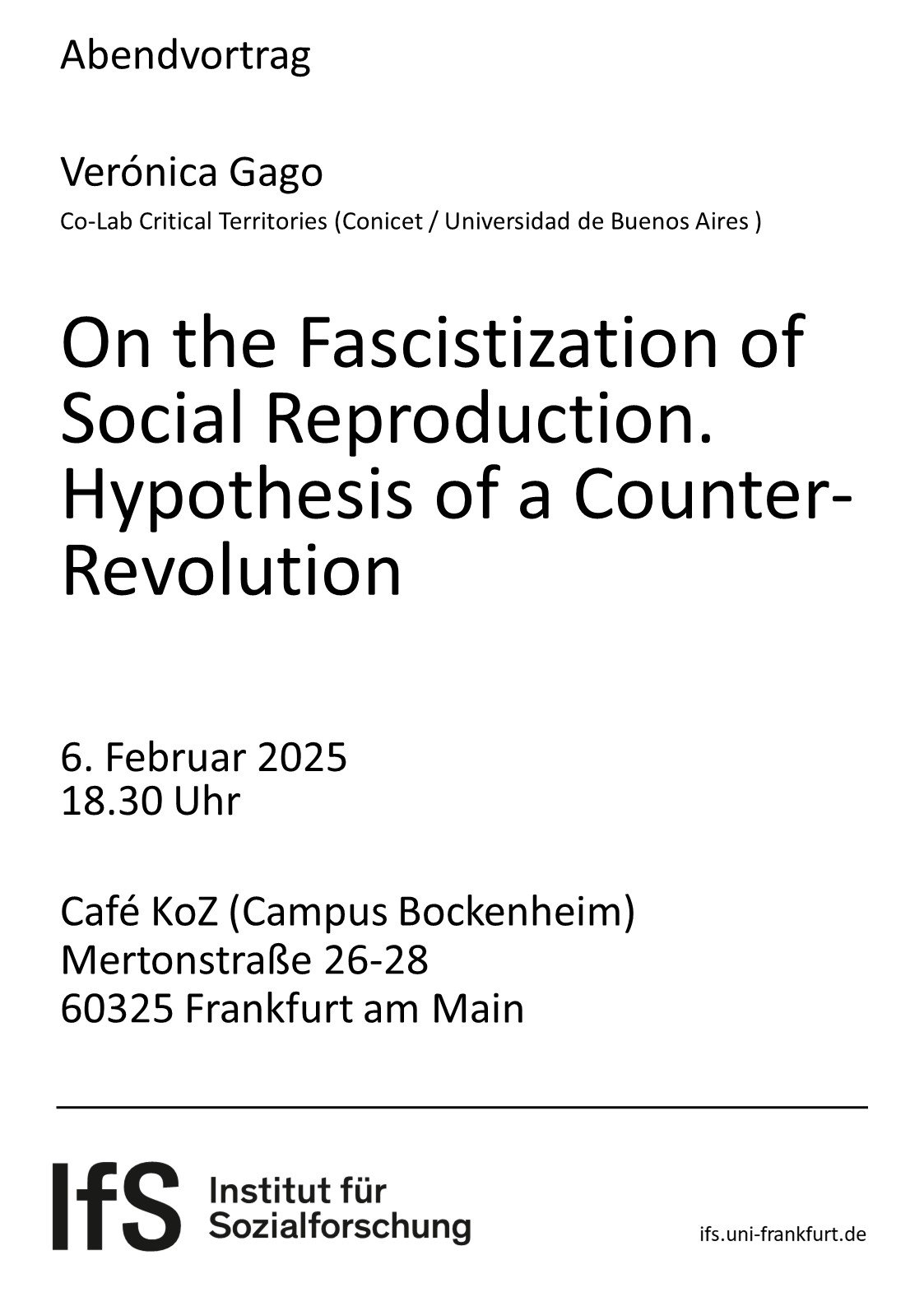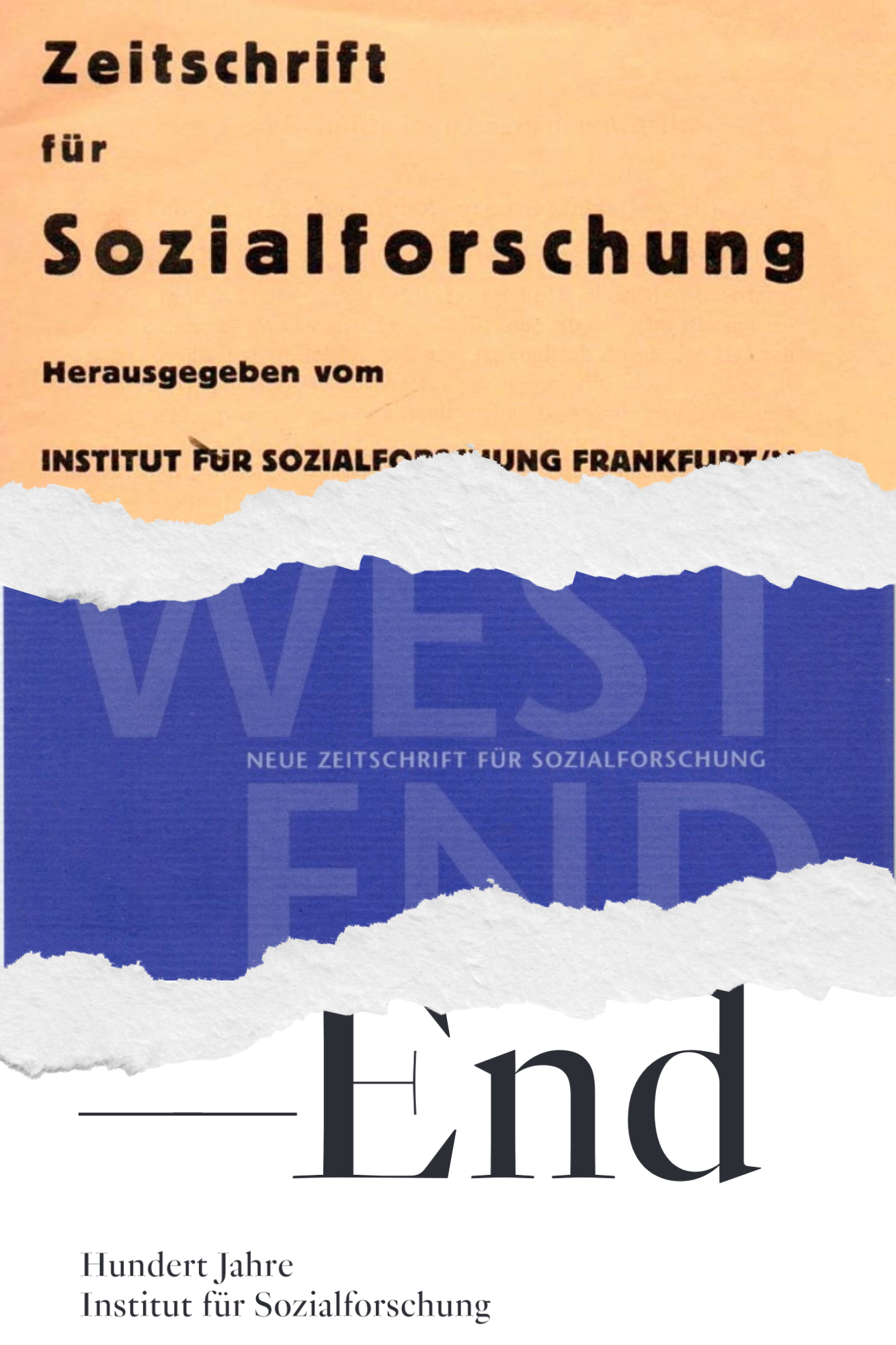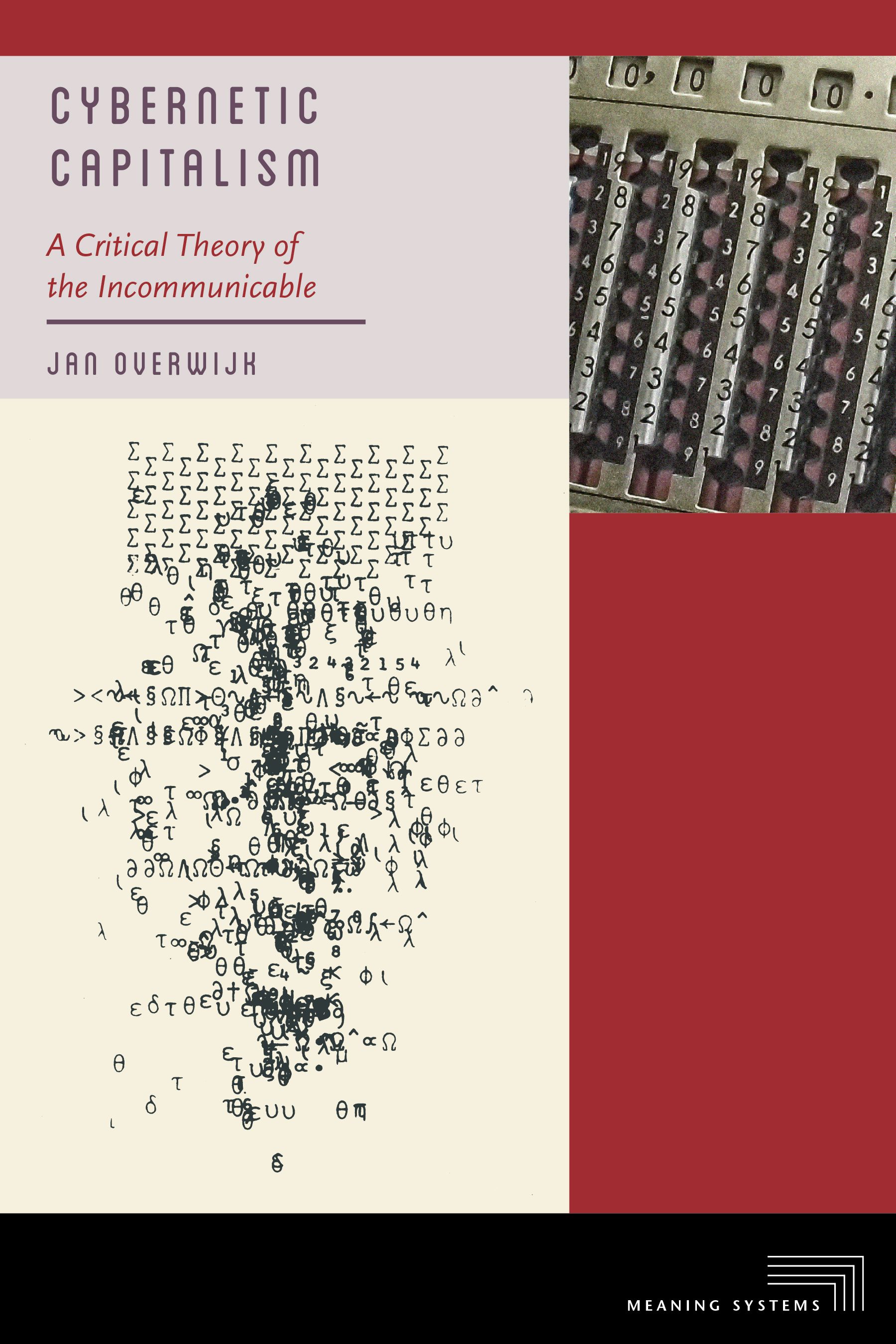Aktuelles
Institut für Sozialforschung Institut für Sozialforschung
Working Paper #24
This IfS Working Paper presents Felix J. Weil’s The Social Function of the Race Philosophy in Nazi Germany, an unpublished manuscript from 1946 which was recently found in the archive of the Institute for Social Research (Institut für Sozialforschung; IfS) in Frankfurt am Main. The manuscript is probably the only existing copy of this study that had previously been considered lost. The Institute for Social Research has decided to make the study available to researchers in the form of a facsimile edition. This means that readers not only can view the fair copy, but due to Weil’s consistently legible hand-written corrections they can also study the document for what it is: a revised manuscript that was ready to be typeset, but never was, let alone published. The facsimile is introduced by Alexander Valerius whose research sheds light on the academic work of Felix J. Weil and states that Weil was not only the financier of the IfS, but an economist and political scientist also engaged with legal questions and antisemitism. Valerius describes the development and failure of The Social Function of the Race Philosophy in Nazi Germany within the framework of a “Treatise on Antisemitism” which was envisaged by the American Jewish Committee (AJC) and the IfS in exile during the 1940s.
Institut für Sozialforschung Institut für Sozialforschung
Stellenausschreibung –Sachbearbeiter:in (m/w/d) für Sekretariat und Personalverwaltung (Vollzeit, 40 Std./Woche)
Das IfS sucht zum 1.5.2025 oder 1.6.2025 eine:n Sachbearbeiter:in (m/w/d) für Sekretariat und Personalverwaltung.
Institut für Sozialforschung Institut für Sozialforschung
Institut für Sozialforschung Institut für Sozialforschung
Verónica Gago: On the Fascistization of Social Reproduction. Hypothesis of a Counter-Revolution
Verónica Gago is one of the most prominent feminists of our time. She is considered an organic intellectual of the large pre-pandemic feminist movement in Argentina. Verónica Gago taught at various universities and has published widely on feminist social theory, social reproduction, neoliberalism, financialization of everyday life and popular economies. The lecture concludes a research stay at the Institute for Social Research and proposes a feminist reading of current authoritarian tendencies.
Institut für Sozialforschung Institut für Sozialforschung
Schlaglichter auf 100 Jahre IfS
Die nur 9 Jahrgänge umfassende Zeitschrift für Sozialforschung gehört für Alfred Schmidt, der 1970 in deren Wiederveröffentlichung einführte, »zu den großen Dokumenten europäischen Geistes« im 20. Jahrhundert. 1932 gegründet und von Max Horkheimer im Auftrag des Instituts für Sozialforschung herausgegeben, wurde sie zum zentralen Publikationsorgan des Hauses, welches das von seinem Vorgänger Carl Grünberg ans Institut gebrachte Archiv für die Geschichte des Sozialismus und der Arbeiterbewegung mit der Absicht einer programmatischen Erneuerung ablöste.
Institut für Sozialforschung Institut für Sozialforschung
Stellenausschreibung –Studentische Hilfskraft (m/w/d) (32 Std./mtl.)
Am IfS ist im Zeitraum vom 1. April 2025 bis 31. März 2026 die Stelle von zwei studentischen Hilfskräften (m/w/d) (32 Std./mtl.) zu besetzen.
Institut für Sozialforschung Institut für Sozialforschung
Working Paper #23
In den letzten Jahren sind autosoziobiografische Erzählungen über Klasse breit rezipiert worden. Die Schriften von Annie Ernaux, Didier Eribon oder Édouard Louis beleuchten aus unterschiedlicher Perspektive, wie sich die kapitalistische Verfügungsgewalt in die Körper einschreibt und Klassensubjekte formt. In meinem Working Paper stütze ich mich auf eine in diesem Literaturgenre prominente Figur – den transclasse –, um aufzuzeigen, welche Rolle dem Affekt der Scham als dominanter Reproduktionskraft für die Klassenherrschaft zukommt. Da sich nicht alle Menschen in gleichem Maße oder auf die gleiche Weise schämen, möchte ich der Frage nachgehen, wer welcherart für Scham empfänglich(er) gemacht wird und welche demokratietheoretischen Konsequenzen daraus folgen, wenn Scham als existenziell wahrgenommen wird, obwohl sie politisch erzeugt ist. Ich werde argumentieren, dass ein produktiver Schamumgang es nicht nur erlaubt, das Bild eines schicksalshaften »Individualgefühls« von Einzelnen zu desavouieren, sondern zudem radikaldemokratische Ressourcen anderer Affektpolitiken freilegt. Scham so zu deuten, hilft zu verstehen, dass der Kampf um und für Demokratie immer auch ein Kampf um und für Affekte ist.
Institut für Sozialforschung Institut für Sozialforschung
Neuerscheinung
Cybernetic Capitalism presents a groundbreaking synthesis of Niklas Luhmann's systems theory and critical theory. Overwijk examines how neoliberal capitalism now thrives on the management of incommunicability rather than the pursuit of total communicability, harnessing ecological complexity as its driving force. Contrary to earlier critiques that highlighted capitalism's push to render all social life fully communicable, the current era encourages market incalculability, profits from user unpredictability, and spurs service
workers' creativity.
This ecological logic resonates with the extractivist drive of the Anthropocene, reframing our understanding of capitalism as an adaptive, environment-attuned system. Cybernetic Capitalism also exposes how these dynamics intersect with the cultural rise of conspiracy theories and radical-right irrationalism. By illuminating capitalism's paradoxical reliance on both rationalist and irrationalist currents, Overwijk provides a vital new lens for interpreting the complex politics of our time.







